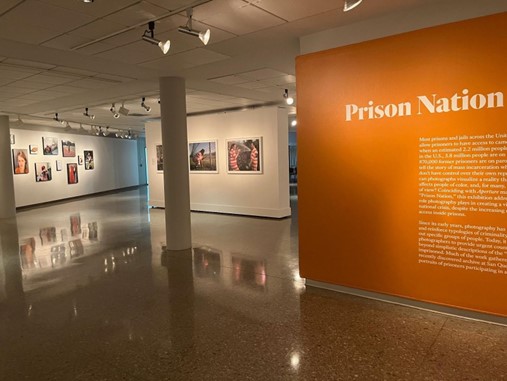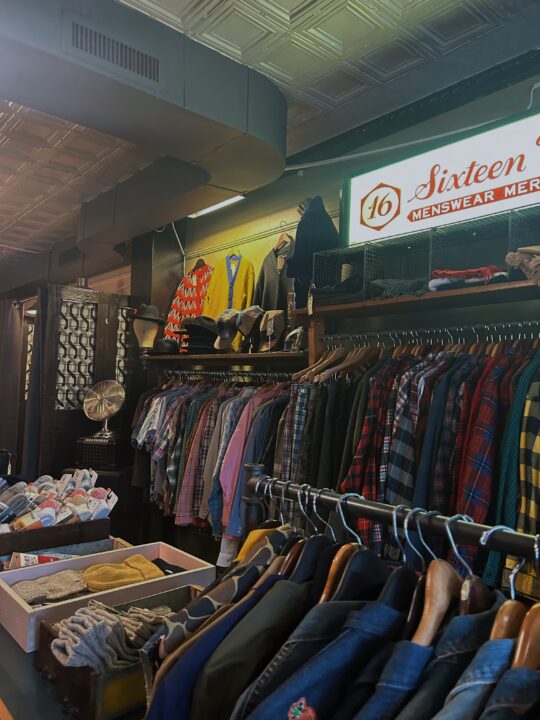The United States is the world’s leader in mass incarceration — it has a criminal justice system that holds almost 2 million people. Such a large consignment of it as well is in the disparate detaining of Black and South American populations. It is no surprise that the system is indeed broken. The people impacted are kept in the dark. Little is known about the inner machinations of prison life, but the arrival of the exhibition Prison Nation demands to change this through artistic activism.
Prison Nation is a group exhibition organized by Aperture Foundation, a not-for-profit foundation that “connects the photo community and its audiences with inspiring work, sharpest ideas—in print, in person, and online” according to its website. The exhibition, curated by Nicole R. Fleetwood and Michael Famighetti, features the work of artists including Lucas Foglia, Bruce Jackson, Emily Kinni, Jesse Krimes, Jack Lueders-Booth, Deborah Luster, Chandra McCormick and Keith Calhoun, Zora Murff, Nigel Poor, Joseph Rodriguez, Jamel Shabazz, Sable Elyse Smith and Stephen Tourlentes.
Since Spring 2018, the exhibition has traveled through various venues such as the Cleveland Public Library in Ohio, the Southeast Museum of Photography in Florida, the Davis Museum at Wellesley College, Massachusetts and has been at the University of Maryland, Baltimore County in the Albin O. Kuhn Library Gallery since August 22, 2022.
Upon walking into the exhibit, viewers are greeted by a curatorial statement in white plastered against an orange wall — it instantly summarizes the intent of the displays. It states that the exhibit seeks to address “the unique role photography plays in creating a visual record of this national crisis, despite the increasing difficulty of gaining access inside prisons.”
The camera has previously been used as a weapon to single out people and reinforce stereotypes of criminality. But this time, we the audience are invited to view the prison population through their own views and stories, through these artists’ empathetic visions.
The layout of the exhibit, including the white and orange walls reminiscent of prison uniforms and a salon-style of hanging, is all intentional. All subjects of the artworks contain people who are incarcerated and also display their relatives. There is a sense of family and the personal self. A collage of images that complement each other, bearing the same theme of stillness of time and space.
Through works including the personal collection of Nicole R. Fleetwood’s prison photographs sent by her cousin Allen, who was sentenced to life in prison; Zora J Murff’s obscure photographs of adolescence in Linn County Juvenile Detention; or Bruce Jackson’s tragic documentary photographs of southern prison farms located on sites of former slave plantations evoking the slavery-like prison labor imposed in the American criminal justice system, it all comes together to work as a reflective experience for the creators and viewers alike.
Jean Kim, freshman Global Studies Major and Dhruti Sheth, freshman Psychology and Spanish major, came to view the exhibition and shared their thoughts on its importance.
Kim says, “this exhibition is reminding me of how we can use different mediums to humanize people. We were just learning about the 13th amendment and the documentary [13th] and how it didn’t really end slavery. This exhibition basically shows how law enforcement has perpetuated racism.”
Sheth pointed to one of Lucas Foglia‘s photographs of Rikers Island inmates watering a garden. One of the subjects in the image playfully sprays a water hose onto another smiling subject. Sheth said, “a lot of the time when you think of prisoners, the photos we think of are mugshots. That straight face, no emotion…it makes us think what they’ve done is wrong. But in that picture, they’re [the inmates are] smiling- they have emotions and they are human. A Lot of people are put into jail wrongfully, especially people of color. There are a lot of stories behind those incarcerated that aren’t presented to the public and are not just about bad people.”
Prison Nation explores prison life and humanizes its subjects through varied photography. The exhibition runs through October 14, 2022 and is open to the public in AOK Gallery.


